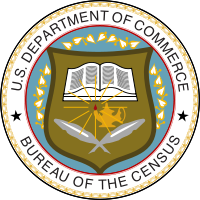 A new report from the U.S. Census Bureau offers a look at racial differences in educational attainment. The study found that 93.3 percent of non-Hispanic White Americans over the age of 25 had graduated from high school. For African Americans over the age of 25, their high school graduation rate is 87.0 percent.
A new report from the U.S. Census Bureau offers a look at racial differences in educational attainment. The study found that 93.3 percent of non-Hispanic White Americans over the age of 25 had graduated from high school. For African Americans over the age of 25, their high school graduation rate is 87.0 percent.
Some 63.8 percent of adult non-Hispanic White Americans had at least some college experience, compared to 52.9 percent of adult African Americans. More than one third, 36.2 percent, of adult non-Hispanic White Americans in 2015 had obtained a bachelor’s degree. For adult African Americans in 2015, 22.5 percent had earned a bachelor’s degree. For non-Hispanic White adults, 13.5 percent held an advanced degree in 2015 compared to 8.2 percent of African Americans.
The full report, Educational Attainment in the United States: 2015, may be downloaded by clicking here.











Any thoughts on closing the gap? Is it even possible at this point? I swear that every year I hear the same news. The reality is that even with an increase in educational attainment, it is always comparable to a race that has higher income and better resources. The rising tide lifts all boats.
Mathematically alone, the only way to “close” the gap, would be to have blacks attain higher education rates than whites/asians for a significant period of time. Is that realistic? Should the emphasis of the black community continually be comparative, or should we push more blacks into higher education for its own sake (i.e better income, quality of life etc.). My thought is that we will continue to look poor in comparison indefinitely by playing the same comparison game.
I think closing the gap starts with the community as a whole to emphasize the imperative mess of it not just for elevated status of life, but relatability of younger generations. Just like we are as entertainers and athletes, this is a feasible attainment even to surpass the majority. It is an daunting call of duty, but it will have a ripple effect. The change of mentality will transcend back into the community to be a pillar or having knowledge of bringing the people up with them so to speak. Every person that looks like myself, I deliver the urgency to progress forward and take someone on the journey with you. This gap will be closed and surpassed. Change begins with one’s self.